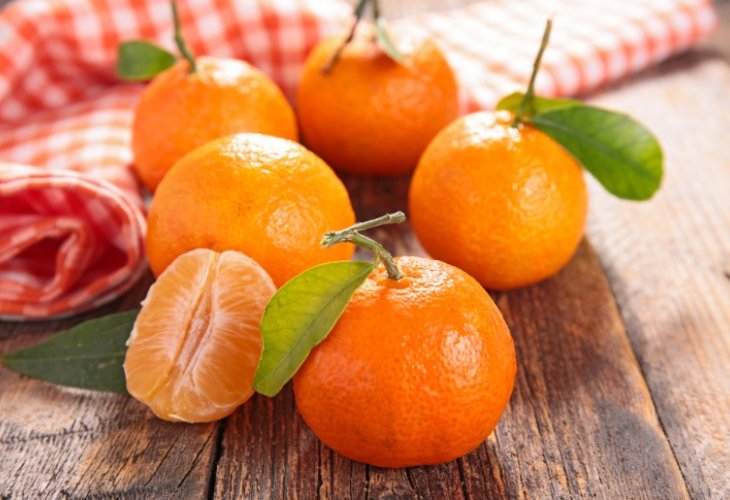Recommended Winter Treat: 10 Health Benefits of Clementines. Number 7 Will Especially Surprise You
Beyond their wonderful taste, clementines have numerous health benefits, making them one of the healthiest fruits. With autumn and winter approaching, it's a great opportunity to incorporate this amazing fruit into your daily diet to enjoy its many advantages.
 (Photo: shutterstock)
(Photo: shutterstock)1. Rich in Vitamin C
Clementines belong to the citrus family and are a recommended treat for the Israeli winter. Like all citrus fruits, clementines are abundant in vitamin C. A typical fruit contains between 9-20 segments filled with juice sacs, enclosed in a thin peel. The seeds are located near the center of the fruit. The nutritional value of a clementine (per 100 grams) is 45 calories, 10 grams of sugar, 175 milligrams of potassium, 45 milligrams of vitamin C, and 2.3 grams of dietary fiber.
2. Helps Enhance Iron Absorption from Food
Iron is essential for various bodily functions, as it binds oxygen to the red blood cells that carry it throughout the body. Oxygen is crucial for the activity of all cells, and it's very necessary. Clementines contain a generous amount of vitamin C, which, when paired with iron from other foods, enhances the absorption of this important mineral, increases the body's oxygen levels, and provides energy to perform various activities more easily without tiring.
3. Aids in Cell Division
One of the body's capabilities is to properly divide its cells. Clementines have a unique feature called "cytoplasis," which means preventing cell destruction. Thanks to this ability, cell production is increased, and their division is made more efficient across different body parts. This division assists in normal growth, cell "wear" repair, and replacement of old cells with new ones, making the body healthier and more resistant to external and internal damage.
4. Maintains Skin Health and a Youthful, Fresh Appearance
To maintain young, healthy, and fresh skin, it's important to consume foods that contain vitamins and ingredients that renew skin and repair time damage, such as vitamin A and antioxidants. Clementines contain both of these important components, making them ideal for preserving a young, fresh, and wrinkle-free appearance.
5. Improves Digestive Health and Prevents Constipation
Clementines, and citrus fruits in general, contain a substantial amount of dietary fiber. Dietary fibers are very effective at strengthening the digestive system and aiding in proper bowel movements.
6. Assists in Dental and Gum Health
Eating clementines, and foods containing vitamin C in general, positively impacts dental and gum health, prevents ulcers, and helps maintain oral hygiene.
7. Helps Prevent Cancer
Research indicates that "limonoid," one of the abundant components in clementines, helps prevent the development of oral, breast, lung, stomach, and skin cancers. Limonoids are plant-based chemicals that inhibit tumor growth, greatly aiding in the prevention of various cancers. Researchers continue to explore these life-saving plant chemicals, abundant in the nature treats given by the Creator in His mercy.
8. Strengthens the Immune System
Clementines also strengthen the body's immune system, warding off various illnesses, including the flu and other diseases that exploit the body's weakness and attack it.
9. Prevents Kidney Stones
Drinking clementine juice reduces acidity in the urine and helps those suffering from kidney stones. Incidentally, orange juice is equally effective. You can even mix them.
10. Clementine - The "Daughter" of the Mandarin
Finally, what's the difference between a clementine and a mandarin? Not much. They are essentially the same fruit, where the clementine is a hybrid between the tangerine, one of the mandarin varieties, and the sour orange - a citrus tree whose fruits are not meant for consumption. The resulting fruit was named after the creator of the hybrid, Father Clément Rodier. Thus, the clementine is considered the "daughter" of the mandarin. It can be distinguished by its color: while mandarins are more orange, clementines are yellow and lighter. Another difference is that clementines are marketed and ready to eat at the beginning of the fall, compared to mandarins, which are marketed closer to Chanukah.

